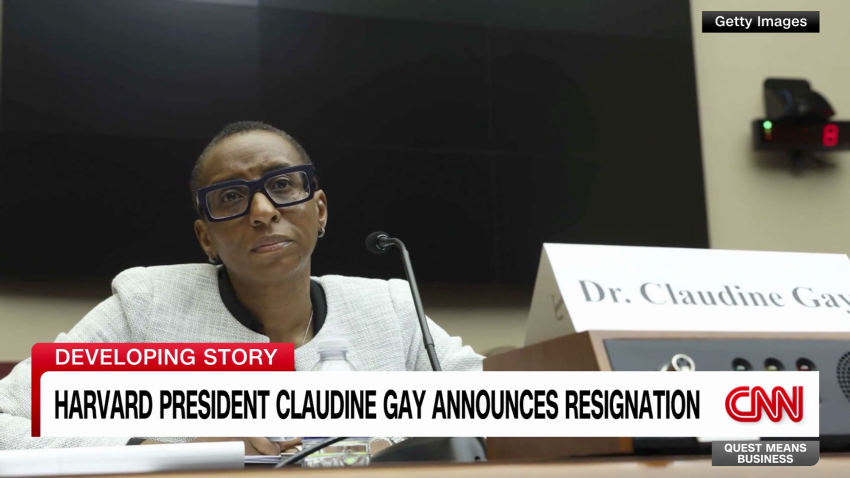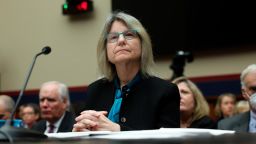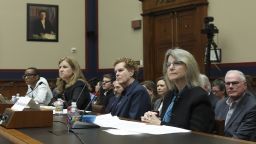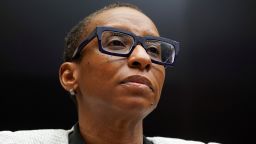Editor’s Note: Jeremi Suri holds the Mack Brown Distinguished Chair for Leadership in Global Affairs at the University of Texas at Austin, where he is a professor in the History Department and the LBJ School. He is the author and editor of eleven books, most recently, “Civil War By Other Means: America’s Long and Unfinished Fight for Democracy.” He is the co-host of the podcast, “This is Democracy.” The views expressed here is his own. Read more opinion on CNN.
American universities are the envy of the world, but those who control them do not seem to understand why. Students and scholars from every continent make enormous personal sacrifices to gain admission to US campuses, and in recent years applications to the most prestigious schools have increased dramatically. The top universities offer extraordinary facilities for study, research, artistry, athletics and mingling among talented and diverse people.
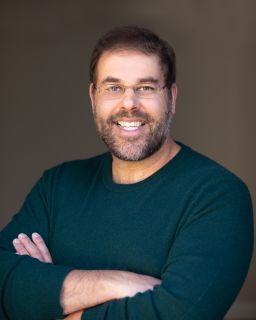
The purpose of all of this investment, however, is poorly explained to the rest of the world. American universities offer dynamic spaces for learning and discovery, unparalleled by any other institution, and they promote efforts to improve the world in ways large and small. On most campuses today, that compelling mission does not have the defenders it deserves. The resignation of Harvard University’s president, Claudine Gay, after only six months and following punishing scrutiny for public remarks about the Israel-Hamas conflict and allegations of plagiarism, reflects a deepening divide between the mission of the university and the role of the university president.
Along with Gay, Liz Magill at the University of Pennsylvania resigned — in part because of immense pressure from donors and others — but also in part because they could not pull their campuses together around a compelling articulation of their institutional mission amidst violent controversy. This is a very difficult challenge. It is indeed an old challenge, one that predates the fulminating controversies faced by both leaders. It is one a new generation of university leaders must now confront head on. The frustrating reality is that most current university leaders are ill-prepared.
How does one become a university president today? The process for selecting these figures is strange and feeds the problems most recently on display. The committees that anoint college leaders are almost always secretive or lacking in transparency, and at top schools they are usually dominated by voices far removed from what should matter most: teaching and research.
Search committees for presidents and deans prioritize fund-raising, public relations and managing athletics much more than the quality of candidates’ teaching or scholarship. Presidents are not chosen as intellectual leaders; they are administrators for what are, in fact, large university corporations with powerful external stakeholders. Unsurprisingly, then, presidents are expected to cater to the external pressures, and as a result they often prioritize that demand above their main responsibility: education. Many presidents and deans have not taught in a classroom or worked in an archive or a laboratory for at least a decade.
That’s because to get ahead in the university bureaucracy, you have to act like a bureaucrat, keeping various groups satisfied by balancing budgets and avoiding controversy. Much has been made by politicians and others about the supposed rise of the “woke” university environment, typified in these critiques by what critics deem selectively issued public statements of political support or condemnation. But the most political statements from universities almost never come from their leaders. When presidents pursue a political goal – diversity is one – it is because powerful groups inside and outside the university have demanded evidence of action, as was the case after George Floyd’s terrible murder by Minneapolis police officer Derek Chauvin in the spring of 2020. In that case and many others, university leaders followed trends, and they avoided other difficult issues, including inequality, until it was unavoidable.
Too often college presidents are chosen not to lead for a purpose, but to keep the most influential members of their communities comfortable. Like other politicians today, they serve interest groups. The most organized groups have money and political connections, and they are largely outside the university. Their influence has grown in recent years, as universities are more dependent on outside funding and placating meddling politicians.
Meanwhile, the least powerful interest groups on college campuses are the researchers and students committed to learning and scholarship. Students and scholars have remarkably little influence over basic decisions about resources and priorities on campuses, and that already-meager influence has declined as the power of donors and political figures has increased. Certainly, the ouster of Gay and Magill is evidence of that power, but it’s hardly the only example. This power grab goes far beyond the missteps or targeting of two university leaders. Just look at how the size of football stadiums has grown, with more luxury boxes for donors, while libraries and other student academic resource budgets have shrunk.
Despite common assumptions, the leaders of our campuses are rarely active scholars or committed advocates. The former are too focused on research and the latter are too controversial to ascend what is a steep and unforgiving administrative track. Universities cultivate deans, provosts and presidents who keep their heads down and go along with conventional wisdom, and the power behind it.
Although some of this is unavoidable in any large organization, recent events highlight how far this dynamic has diverted us from the mission of higher education. After Hamas launched the bloodiest attack on Jews since the Holocaust, and then Israel retaliated with some of the most deadly attacks on civilians in recent memory, university leaders were largely absent.
The violence affected many of their students and scholars directly, and it horrified almost everyone. Judgments of cause and blame obviously differed widely, but apathy or disinterest from leaders only made matters worse as angry, frightened students felt neglected. The mission of universities clearly called for immediate, intensive efforts to enable learning and discovery around these issues, providing a safe and free space for all groups to feel respected and included, so long as they respected and included others.
The hesitation of university leaders — most notably before Congress when Gay, Magill and MIT president Sally Kornbluth were called to testify and faced sharp questioning by GOP Rep. Elise Stefanik of New York — showed that they were uncomfortable with difficult moral issues, fearful of offending any vocal group and committed to quiescence over engaged discussion, including legitimate protests. By not taking a side or saying everything “depends on context,” they pleased no one and antagonized everyone. That is not how educators, who thrive on the study of controversial issues, behave. It is how administrators are taught to act and keep their careers moving forward.
Presidents Gay, Magill and their counterparts would have been better served to lean into controversy, clearly articulating the humanistic values behind all learning at universities: freedom from violent attack for one’s identity, justice for past wrongdoing and rights of self-defense and self-governance. The complex application of these values merits attention, not avoidance.
Above all, presidents should encourage the widest possible range of fact-based opinions, and all groups – regardless of their power – should be made to understand that they are full, respected parts of an evolving campus conversation. Leaders should shun and limit the expression of opinions that recklessly disregard learning, bully others, or harass particular groups. Calls for genocide, like racist slanders or sexist slurs, obviously fall into this latter category and should be identified as such.
University leaders need to model an honest struggle over values and their application to complex policy issues in our world. If politicians or other power brokers seek to impede or co-opt that struggle, they must be called out as impediments to academic freedom and the university’s true purpose.
Campus leaders will face more challenges in coming months as students confront wars and threats to democracy. As we have seen, moral indifference will only fuel anger and fear.
In our sharply divided, violent era, leaders cannot hide behind administrative procedures; they must find a way to articulate common values and promote discussions that address controversial world events for the purpose of learning and discovery. That is the only way to educate citizens to improve the world, rather than repeat past mistakes.
Universities therefore need to cultivate new leaders, and incentivize current ones, to articulate moral vision and act with steadfast commitment to the core mission of higher education. Raising money and balancing powerful interest groups will remain important, but it must be secondary. Connection to the classroom, the archive and the laboratory is where the purpose of university work resides; it is where the most fundamental learning and discovery occurs. Presidents and deans should come more immediately from these settings. They should be active scholars and proven teachers who embody what the university is really about. They can speak with authenticity to controversy and encourage serious discussion of difficult topics. They understand how American universities can and do change the world.
In this new year, a number of elite institutions will select new presidents. They can collectively change what we value in our campus leaders. The United States leads the world in higher education; it is time we remember why.
